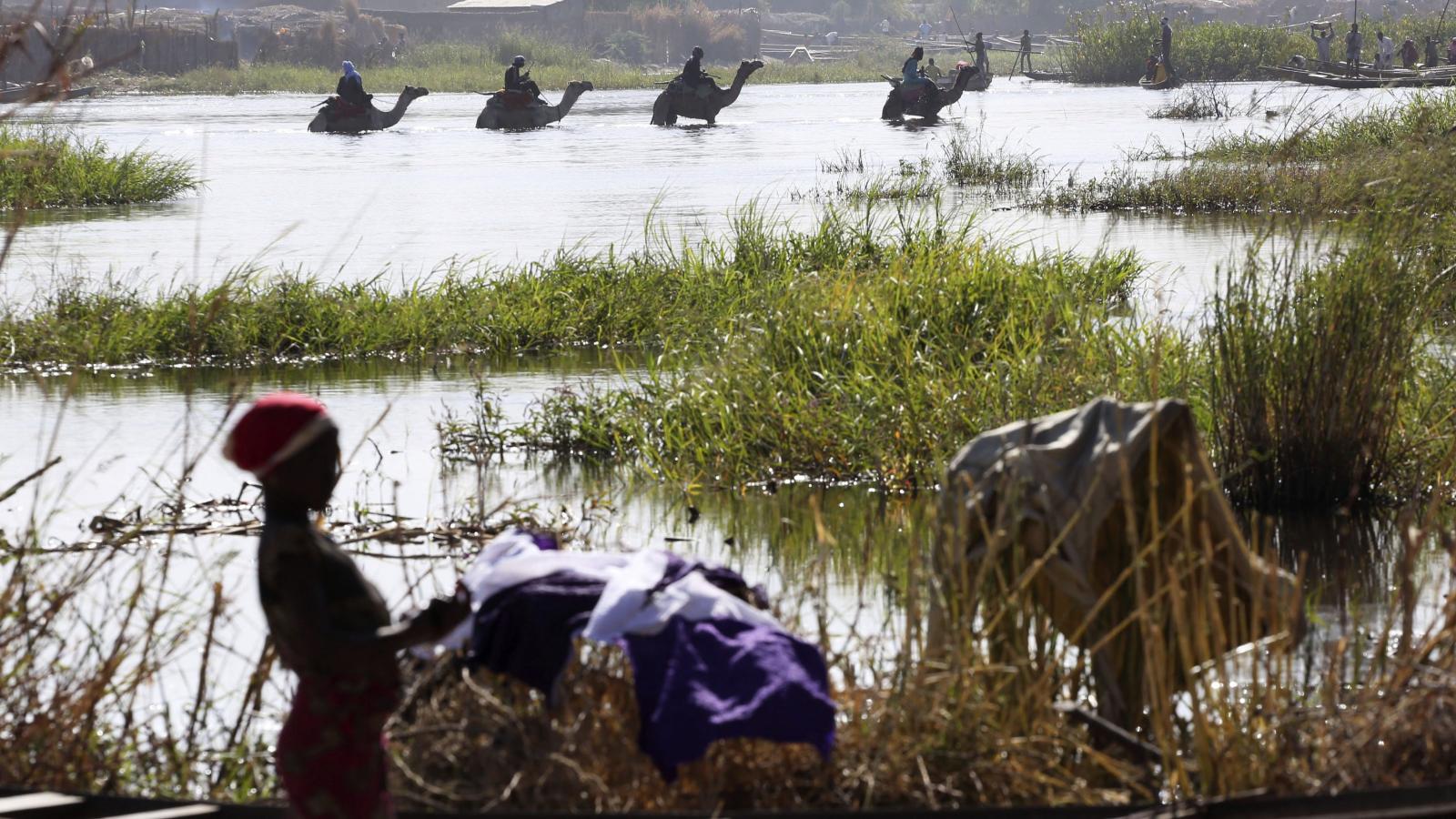What regional factors influence Lake Chad’s variations in water level?
Lake Chad, a large body of freshwater, is the agricultural and economic heart of a remote region of Africa, shared by Cameroon, Chad, Nigeria, and Niger. Severe droughts in the 70s and 80s have conditioned local decision-makers and foreign aid agencies into assuming the lake continues to dry out to this day. This assumption is incorrect (Bader et al., 2011, Hydrological Science Journal). The real question is: What regional factors influence Lake Chad’s variations in water level? Dr. Frederi Viens' team provides some answers by exploring the complex hydrology, land use, and climate in the Lake Chad region. Their data and models include daily river discharge rates, dekadal rainfall data, a hydrologic model derived from a digital elevation model, intra-lake hydrology modeling, thirsty crop information,and global climate indicators. Via computational Bayesian analysis, our results for the lake’s north pool from 1995 to 2010 show weak dependence on regional rainfall, no relation with global average temperatures, and positive effects of irrigated agriculture, indicating that lake and farming activities both benefit from good rainfall years. A hierarchical Bayesian framework will help us construct more accurate priors for irrigation and infiltration rates. A finer-scale spatial analysis will strengthen our understanding of the efficiency of the Lake Chad’s tributaries and the sustainability of the Lake Chad basin’s ecosystem services. Widespread misinformation has many policy makers believing incorrect facts about the lake’s hydrology, with deleterious effects on the conversation and planning surrounding a vital natural resource in this developing region. Dr. Viens's team appears to be alone in working to draw objective conclusions from data using sound statistical analyses, and to get the word out to the broader community of stakeholders and decision-makers.
PI: Frederi Viens (Department of Statistics and Probability)
CSTAT collaborator: Sarah Hession.

